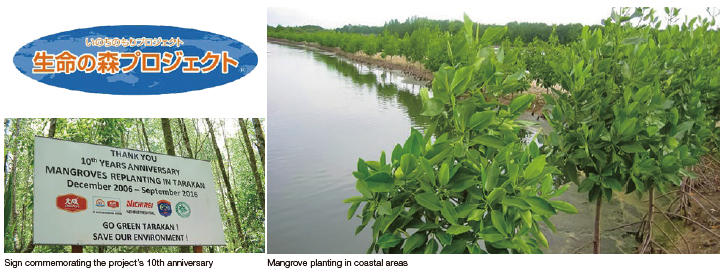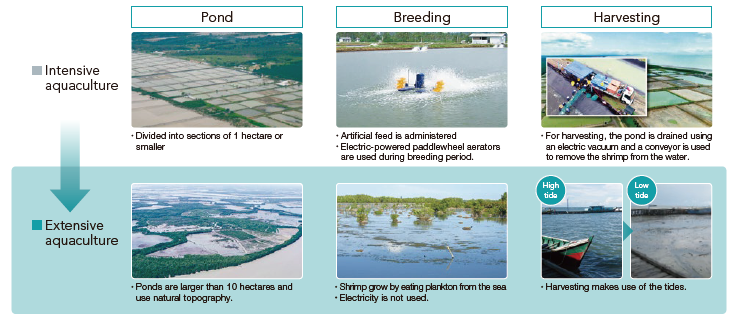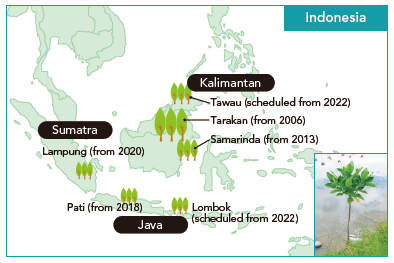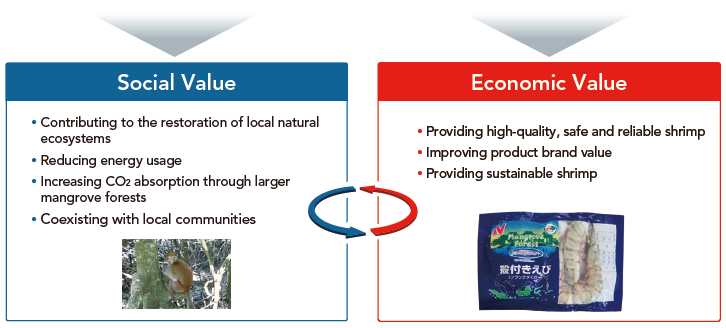Resolving Social Issues through Our Business Nichirei Fresh
Shrimp farming requires large plots of land. In many Asian countries, wide areas of mangrove forests, which buffer the effects of tsunamis and strong winds, have been cut down to make way for artificial ponds for shrimp farming, a practice called intensive aquaculture.
In addition to affecting the ecosystems of birds, fish and small animals, this practice results in contamination of soil, local rivers and the sea by runoff containing the antibiotics and drugs in formula feed. Such marine pollution has become a social issue.
The Inochi-no-Mori-Project is a joint mangrove planting project started in 2006 by Nichirei Fresh, a local shrimp supplier, and Tarakan City in Kalimantan, Indonesia to reduce environmental impact from local shrimp farming and enable sustainable procurement of safe and reliable shrimp.
A portion of the proceeds from this extensive shrimp aquaculture, which has been practiced in Indonesia for hundreds of years, is donated to a fund for systematic mangrove planting in ponds that have been abandoned after intensive aquaculture, in local parks, and elsewhere. We are currently expanding our activities into Java and Sumatra in cooperation with local suppliers.

A traditional shrimp farming method in Indonesia, extensive aquaculture makes use of the natural topography. A small number of juvenile shrimp are released into a pond larger than 10 hectares that is surrounded by berms and mangroves. No feed is given, and the shrimp grow by eating plankton from the sea. As a result, impact on the soil is low, diseases peculiar to shrimp are less likely to spread, the shrimp grow larger, and electricity is not used during the cultivation period.


The mangrove planting that started in Tarakan City, Kalimantan in 2006 has expanded to the islands of Java and Sumatra. We have been planting for 15 years, reaching a total of approximately 380,000 mangrove trees in 2021. The soil and ecosystem in and around Tarakan City have been recovering as planting has spread.
